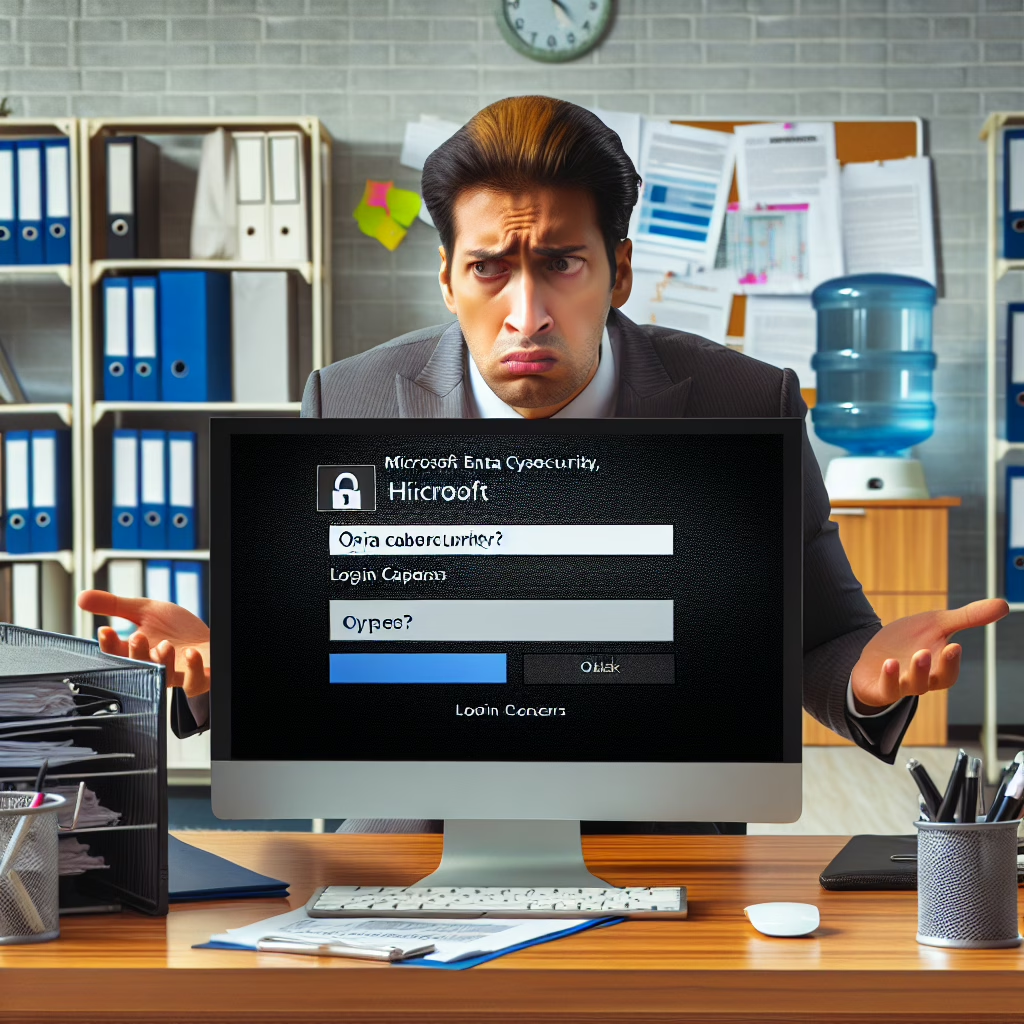In the wild world of cybersecurity, where every click could be a trap and every email a potential minefield, small businesses find themselves in the crosshairs of Russia-linked hackers. These digital marauders have found a new way to infiltrate the unsuspecting: by crafting fake Microsoft Entra pages that look so convincing even your most tech-savvy uncle would fall for it!
Understanding the Microsoft Entra Phishing Scheme
So, what’s the deal with these phony pages? Well, it’s a classic case of phishing—no, not the kind that involves rods and reels—but rather baiting users into providing sensitive information. The hackers create these counterfeit Microsoft Entra pages, tricking users into entering their credentials. Once they have your username and password, it’s game over! They can waltz into your accounts like they own the place.
With small businesses often lacking the robust cybersecurity measures of larger corporations, they make an easy target. After all, who would suspect a simple login page? That’s why understanding this scam is vital for any business owner hoping to keep their digital doors locked tight.
Why Small Businesses Are Prime Targets
Small businesses are like candy stores for cybercriminals. They usually lack sophisticated security systems, making them low-hanging fruit for hackers. In fact, studies show that nearly 43% of cyberattacks target small businesses! This statistic might send shivers down your spine, but don’t worry—we’re here to help you navigate through these choppy waters.
These hackers thrive on exploiting vulnerabilities. They know that small business employees often juggle multiple roles and may overlook minor details when logging into accounts. Combine that with a little bit of social engineering—like an email that appears to be from a trusted source—and voilà! You’ve got a recipe for disaster.
How to Spot Fake Microsoft Entra Pages
Now that you know what you’re up against, how do you spot these deceptive pages? Here are some telltale signs:
- Check the URL: Legitimate Microsoft Entra pages will always have a URL starting with
https://entra.microsoft.com. If it looks even slightly different, proceed with caution! - Look for Typos: Hackers are not known for their proofreading skills. If you see unusual grammar or spelling mistakes, it’s likely a scam.
- Verify Email Sources: Always double-check the sender’s email address. If it doesn’t match up with official Microsoft domains, don’t engage.
The moral of the story? Stay vigilant! The cyber world is full of tricksters waiting for the perfect moment to pounce. Protecting your online presence is paramount.
Strengthening Your Cybersecurity Posture
If you’re running a small business and want to fend off these digital villains, consider implementing some cybersecurity best practices:
- Educate Your Team: Regular training sessions can help your employees recognize phishing attempts and other common threats. Make cybersecurity knowledge as important as knowing how to brew the perfect cup of office coffee!
- Use Multi-Factor Authentication: This adds an extra layer of security. Even if someone manages to snag your password, they won’t be able to log in without that second factor.
- Regular Software Updates: Keeping your software up-to-date is crucial in patching vulnerabilities. Think of it as putting on sunscreen before heading out into the sun!
The Future of Cybersecurity for Small Businesses
The landscape of cybersecurity continues to evolve, and so must our defenses. Small businesses should stay informed about emerging threats like those posed by Russia-linked hackers and adjust their strategies accordingly. With knowledge comes power—and in this case, power means keeping those pesky hackers at bay!
If there’s one takeaway from all this, it’s that awareness is key. The more informed you are about potential threats like fake Microsoft Entra pages, the better equipped you’ll be to protect your business.
If you have thoughts or experiences regarding cybersecurity in your own small business journey (or just want to share a good joke), feel free to drop them in the comments below!
A big shoutout to TechRadar for shedding light on this critical issue. Thanks for keeping us informed!
For more insights on enhancing your business’s safety in the cybersecurity realm, check out our articles on Ripple’s challenges with the SEC, biological innovations, and many other digital protection strategies to keep your operations safe and sound!

